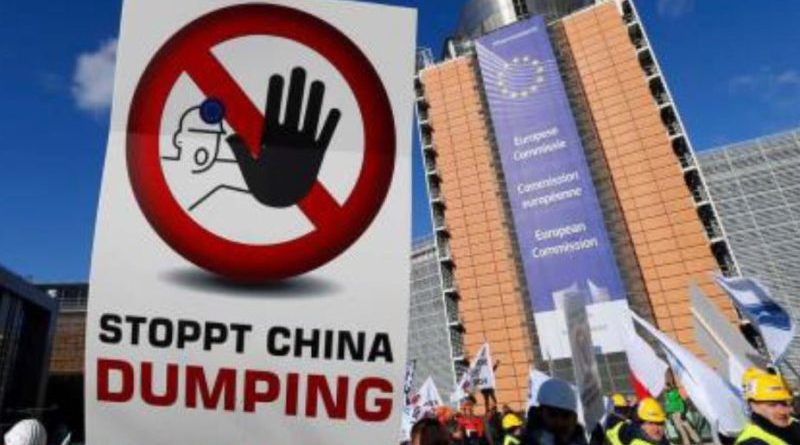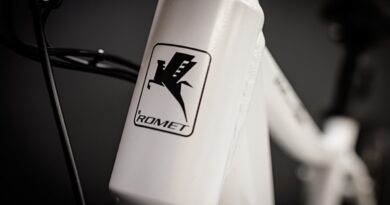EBMA triggers European Commission investigation on pedal cycle dumping measures, targets bike share
The European Bicycle Manufacturer’s Association has instigated a new review by the European Commission into the existing 48.5% anti dumping measures on bicycles imported from China, Indonesia, Malaysia, Sri Lanka, Tunisia, Cambodia, Pakistan and the Philippines.
The European Commission has now served notice that it will review the existing measures, which were due to expire June 8th. In the meantime, existing measures will remain in place for the duration of the investigation, anticipated to run until early September 2019. Should the measures be renewed, then typically another period of five years of tariffs applies.
The renewed investigation has in part been triggered by the explosion of Chinese bike share businesses, something that the EBMA claims is having a negative effect “on bicycle demand and city environments.”
Moreno Fioravanti, Secretary General of the European Bicycle Manufacturers Association (EBMA) said: “The EBMA applauds today’s European Commission decision to launch an expiry review of anti-dumping measures on Chinese bicycles. Following its investigation, we believe that the European Commission will concur with the facts, that trade defence measures must be continued. Otherwise China will ramp up dumping massively and cause crippling injury to the European bicycle industry.
“The EU currently imposes 48.5% EU anti-dumping duties on imported Chinese bicycles. EBMA lodged a request with the European Commission in early March 2018 to extend EU anti-dumping measures on conventional bicycles from China which would otherwise have expired on 6 June 2018. Without a level playing field, Chinese exporting producers would flood the EU market with dumped bicycles and rapidly drive the EU industry out of the market, which already happened in the USA and Japan. The EU must extend anti-dumping measures on Chinese bicycles to ensure fair competition, benchmark innovations like the pedal-assist e-bikes developed by the EU Industry, green jobs and growth in Europe.”
The EBMA’s stance on protecting European makers is in defense of what it tallies to be a €12 billion growth in industrial output.
According to CONEBI’s 2016 annual report, European bicycle production had fallen year-on-year by 3.7% from around 13,152,000 in 2015, though the 2016 tally remains the second largest figure in the past eight reports.
Portugal’s emergence as a European manufacturing powerhouse has seen it creep up to 15% of all EU bicycle production (1,904,000), behind only Germany on 16% (1,971,000) and Italy on 18% (2,339,000). The UK offered just 1% at 83,000 units in 2016.
On bike share, the EBMA cites Chinese statistics that it says show bicycle exports from China to the EU increased from 1,437,954 bicycles in 2016 to 1,658,057 in 2017. This rise, it says, is largely down to “low quality” bike share bikes.
“Low quality Chinese bike-sharing bicycles in the EU represent a major threat to both the EU bicycle industry and EU cities. In China, the massive oversupply of the market with bike-sharing bikes – over 20 million bicycles in less than a year – led to a huge drop of more than 50% in bicycle and e-bike production and sales. At the same time, extensive bike-sharing bike “graveyards” have caused tremendous disruption to traffic and city landscapes, pollution and health hazards. To date, the export of Chinese bike-sharing bikes to the EU has been much lower than it otherwise would have been thanks to the current anti-dumping duties on bicycles; it is another reason why those anti-dumping duties must be extended. Therefore, the EBMA calls on the European Commission to prolong EU anti-dumping measures on conventional bicycles from China beyond 6 June 2018,” concluded Fioravanti.
Declining bicycle sales in China had previously been attributes in the financial statements of Giant and Shimano to the proliferation of bike share.
Fioravanti continued with an accusation against Far-Eastern suppliers: “Fuelled by illegal subsidies and massive overcapacity, China is poised to take over the EU bicycle market through dumping and circumvention, including massive volumes of (low-quality) bike-sharing bicycles. The 13th 5-Year Plan mandates a consolidation in the Chinese bicycle industry to create national and international champions. The largest Chinese bicycle manufacturer Fushida receives massive central and local government subsidies, fuelling its production overcapacities which exceed total EU demand. In 2017, the annual Chinese bicycle production capacities were approximately 130 million bicycles compared with total worldwide demand of 120 million bicycles.”
Not everyone will agree with the EBMA stance, indeed in relation to electric bikes, the Collective of European Importers of Electric Bikes has been at loggerheads with the EBMA and EC in relation to tariffs on electric bike shipments.
The collective recently outlined how it felt a lack of valid evidence and the EC’s apparent acceptance of claims, is set to harm importers.
“While there is still no conclusive evidence for the accusation that imports are injuring the EU industry, the Regulation threatens importers with the possible retroactive collection of sky-high dumping duties. This threat hangs like a sword of Damocles over the head of a very large number of European SMEs,” wrote the Collective in May.
The EBMA is keep to stamp down on circumvention of tariffs too, which would see those shipping the unassembled component parts for European assembly stung with tariffs. Prior European Commission investigations are said to have uncovered evidence of this practice.
The European Commission are inviting producers, importers and others with an interest to make contact, should they wish to participate in the investigation. This interest must be declared by the 19th of June and can be done so via this email. Comments will be considered for a further week until June 26th.



